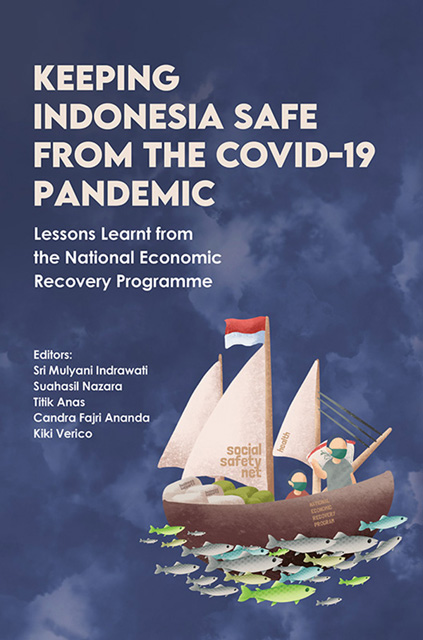 Keeping Indonesia Safe from the COVID-19 Pandemic
Keeping Indonesia Safe from the COVID-19 Pandemic Published online by Cambridge University Press: 30 June 2023
INTRODUCTION
Indonesia announced its first COVID-19 case in the second week of March 2020 and then, to prevent COVID-19 from further spreading, the Government of Indonesia eventually enforced a social restriction called PSBB (Large-Scale Social Restriction) which later became PPKM (Community Activities Restriction Enforcement), with various levels of implementation, even until today. This restriction has forced most people to work from home, regardless of their readiness.
The COVID-19 pandemic has changed the way the government works in a very significant way. Suddenly, without any preparation, government employees were forced to work in a very intensive information technology environment and to work from home. The Indonesian Ministry of Finance (MoF) is no exception to this situation. Compared to other government ministries and agencies in Indonesia, the MoF was in a relatively better position, thanks to its long track record of adopting digital transformation.
Given the urgency of the government to adopt flexible working arrangements, this chapter was written to elaborate on how bureaucracy is adapting to the new ways of working (NWOW) due to the COVID-19 pandemic with the support of digital technology and how this NWOW can then be adopted and be a norm in the future. We analyse how civil servants adapted to this NWOW by utilizing available digital tools to conduct their administration tasks and deliver services to the public. Specifically, we would like to know the answers to the following questions:
1. How well do civil servants accept the NWOW?
2. What are the requirements for having an effective NWOW?
3. What are the side effects of the adoption of the NWOW?
4. What are the civil servants’ expectations for the future NWOW?
5. How does the NWOW affect civil servants’ performance?
We conducted our analysis based on the results of internal surveys administered by the MoF (Program Reformasi Birokrasi dan Transformasi Kelembagaan 2020a, 2020b). The surveys were conducted online and participation was by respondents representing the MoF employees belonging to different organizational units. We understand that these surveys are not representative of the Government of Indonesia as a whole. However, we believe that the results provide valid findings regarding the adoption of the NWOW as they are commensurate with findings from other similar surveys done by other prominent institutions. The results show that civil servants can adapt to the NWOW without affecting their performance.
To save this book to your Kindle, first ensure [email protected] is added to your Approved Personal Document E-mail List under your Personal Document Settings on the Manage Your Content and Devices page of your Amazon account. Then enter the ‘name’ part of your Kindle email address below. Find out more about saving to your Kindle.
Note you can select to save to either the @free.kindle.com or @kindle.com variations. ‘@free.kindle.com’ emails are free but can only be saved to your device when it is connected to wi-fi. ‘@kindle.com’ emails can be delivered even when you are not connected to wi-fi, but note that service fees apply.
Find out more about the Kindle Personal Document Service.
To save content items to your account, please confirm that you agree to abide by our usage policies. If this is the first time you use this feature, you will be asked to authorise Cambridge Core to connect with your account. Find out more about saving content to Dropbox.
To save content items to your account, please confirm that you agree to abide by our usage policies. If this is the first time you use this feature, you will be asked to authorise Cambridge Core to connect with your account. Find out more about saving content to Google Drive.